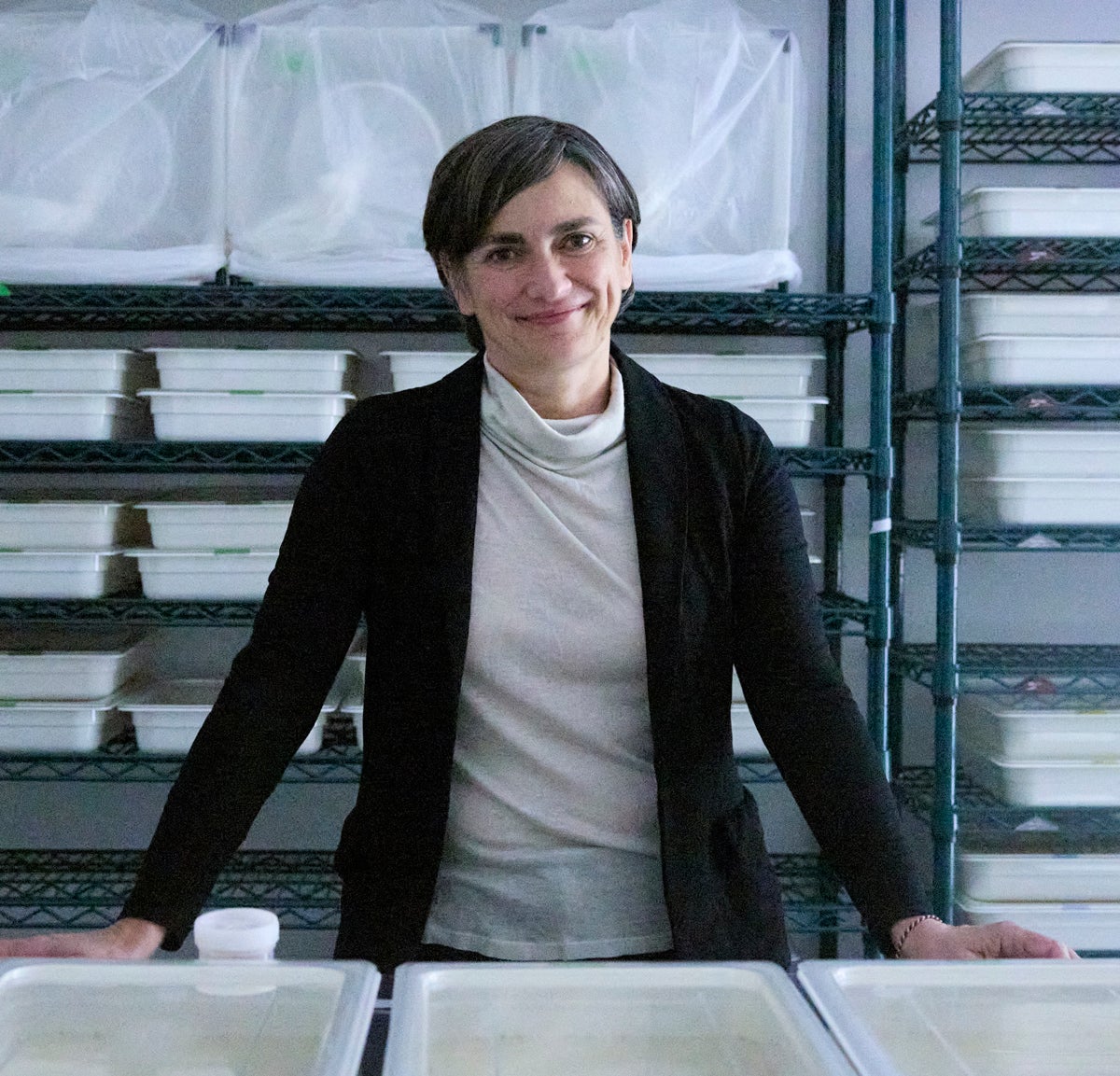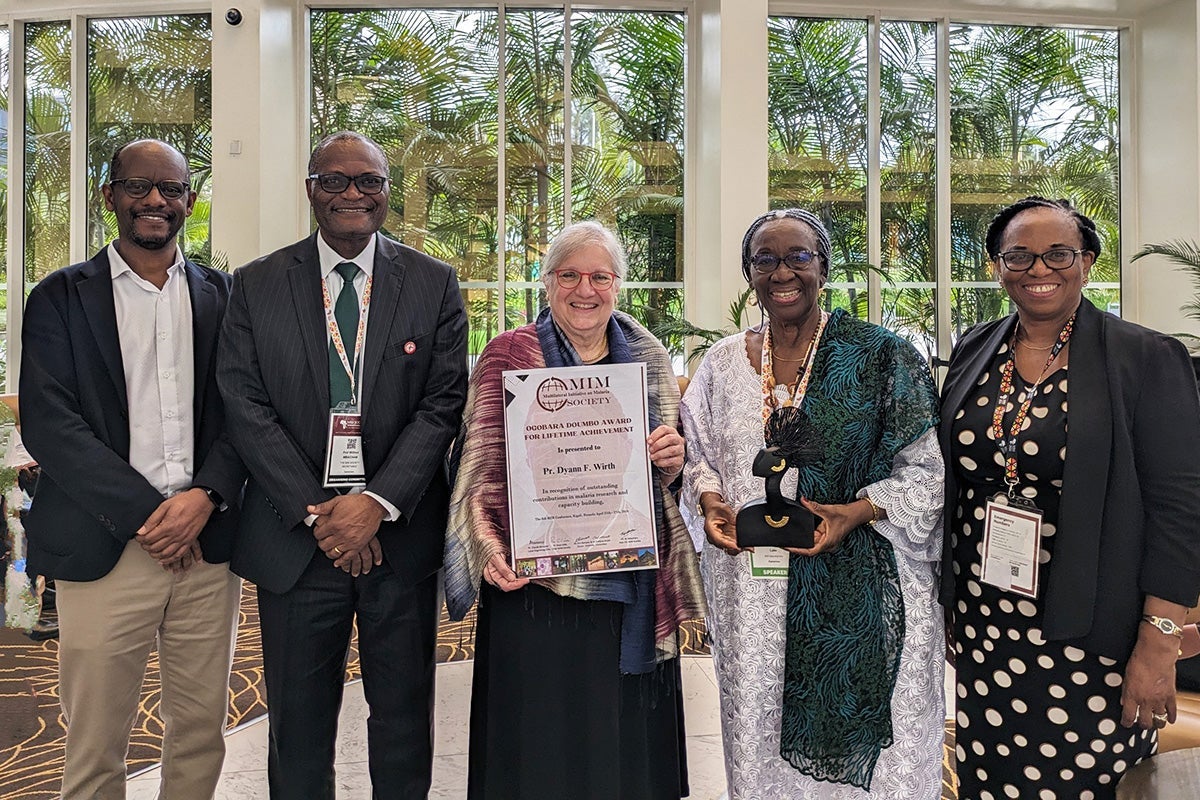Dyann F. Wirth
Richard Pearson Strong Professor of Infectious Diseases
Immunology and Infectious Diseases, Harvard T.H. Chan School of Public Health
Departments
Department of Immunology and Infectious Diseases
Related Links
Biography
Protozoan parasites remain major causes of disease in developing countries throughout the world, yet little is known about the biology or molecular biology of these organisms. The long term goal of this work is to understand basic molecular mechanisms in protozoan parasites with the goal of discovering and applying parasite specific interventions.
The approach my laboratory has taken is to develop methods for molecular genetic manipulation of protozoan parasites in order to begin functional analysis of genes important for parasite virulence, with an emphasis of mechanisms of drug resistance in parasites. Drug resistance poses a particularly difficult problem in developing countries where newer chemotherapeutic agents are often unavailable or too expensive for routine use. Drug resistance is particularly acute in malaria where resistant parasites have spread throughout the endemic world.
Recent evidence from my laboratory and from several other groups worldwide has suggested that a major mechanism of drug resistance in protozoan parasites may be through the expression of a P-glycoprotein type molecule encoded by a multi-drug resistance gene. Genes related to mammalian multi-drug resistance genes have been identified in several protozoan parasites and overexpression of these genes is associated with drug resistance. The immediate goal of the research is to test the hypothesis that these mdr-like genes are indeed the cause of drug resistance in protozoan parasites. This work has been initiated in the Leishmania parasite where my laboratory has previously developed a transfection system, and thus the role of the Leishmania enriettii mdr-like genes can be directly tested.
In parallel, my laboratory has recently developed an analogous transfection system for the malaria parasite. By analyzing these two protozoan systems in parallel, one where the molecular tools are readily available and the other in which drug resistant parasites represent a major and immediate threat to world health, I hope both to understand the mechanism of drug resistance in protozoan parasites and to use this information to develop new approaches to either preventing or reversing drug resistance in these organisms.
Executive Assistant: Haley Cronshaw, hcronshaw@hsph.harvard.edu
Education and Training
-
B.A. ,
University of Wisconsin -
Ph.D.,
Massachusetts Institute of Technology
Awards and Honors
-
Alice and C.C. Wang Award in Molecular Parasitology, 2022
he American Society for Biochemistry and Molecular Biology -
Walter Reed Medal , 2021
American Society of Tropical Medicine and Hygiene -
Honorary Fellow, 2019
American Association for the Advancement of Science -
Lifetime Achievement Award, 2018
BioMalPar -
Faculty Mentoring Award, 2016
Committee on the Advancement of Women Faculty (CAWF), Harvard T.H. Chan School of Public Health -
Fellow, 2016
American Society of Tropical Medicine and Hygiene -
Joseph Augustin LePrince Medal, 2015
American Society of Tropical Medicine and Hygiene -
Fellow, 2010
American Academy of Microbiology -
Member, 2004
Institute of medicine of the National Academies -
President, 1998 - 1999
American Society of Tropical Medicine and Hygiene -
Bailey K. Ashford Award, 1995
American Society of Tropical Medicine and Hygiene -
Award in Molecular Parasitology, 1985 - 1990
Burroughs Wellcome -
Award in Molecular Parasitology, 1982
Burroughs Wellcome -
Fellowship, 1978 - 1981
Helen Hay Whitney -
Predoctoral Fellowship, 1973 - 1978
National Institutes of Health -
Fellow, 1972 - 1973
Fulbright Foundation - Phi Beta Kappa, 1972
-
B.A. with Highest Honors, 1972
University of Wisconsin, Madison


